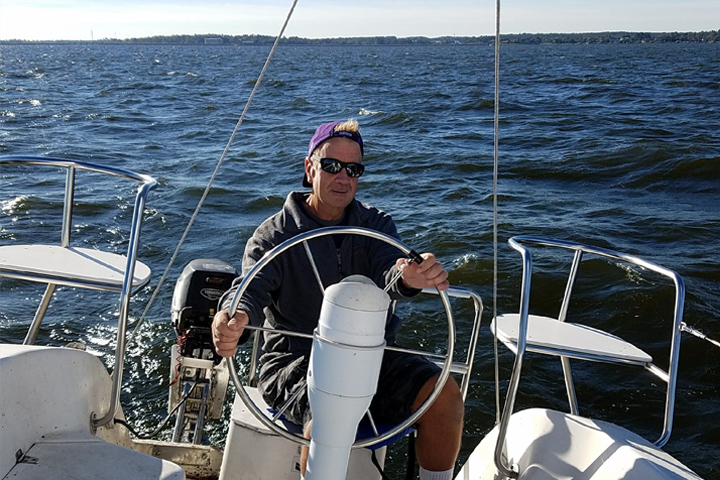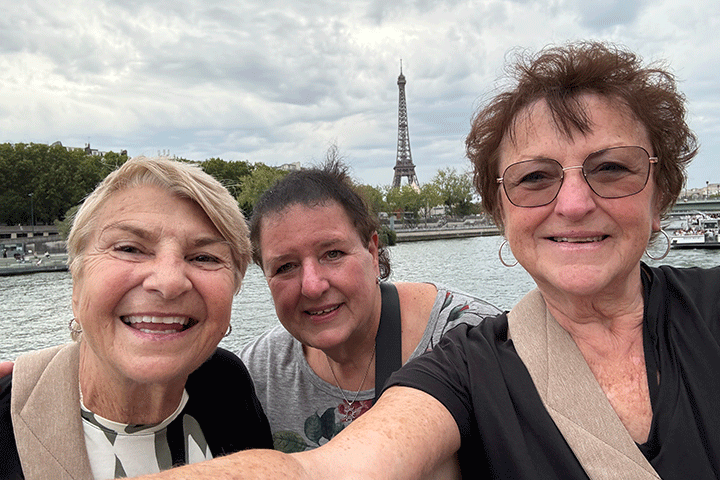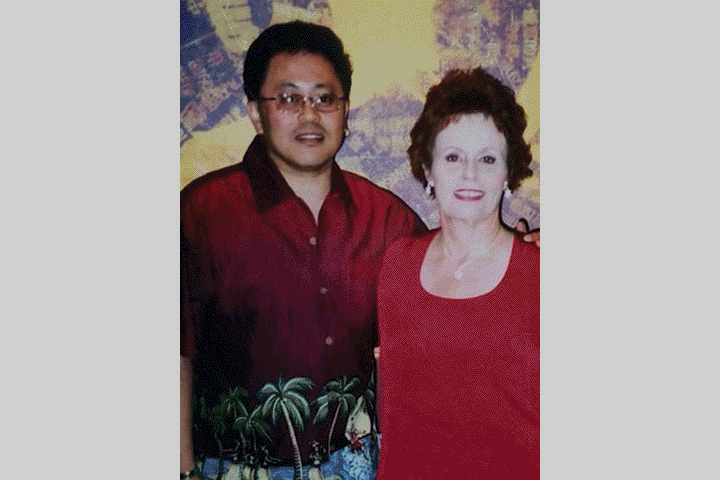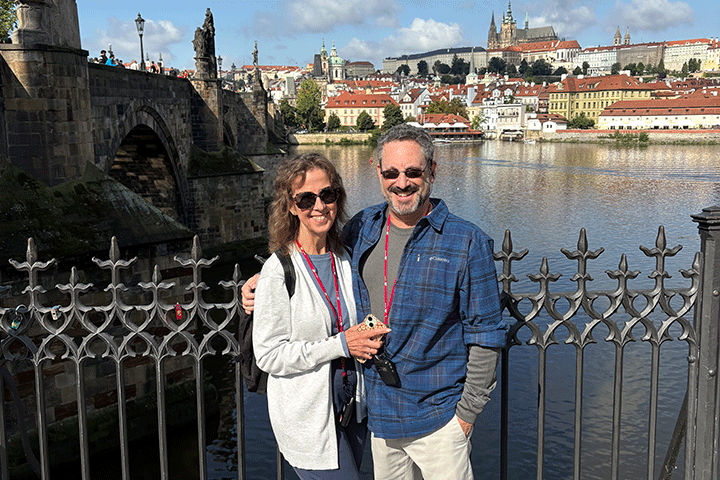Celebrating My 5th Anniversary As a Survivor

- Chemotherapy and radiation start shortly after diagnosis
- Traveling to MD Anderson in Houston for Whipple surgery
- Return of cancer treated with SBRT
I was diagnosed with pancreatic cancer in August of 2012.
My wife noticed that I was jaundiced, and that my urine was very dark. We thought that there was something wrong and went to the doctor.
Chemotherapy and a Second Opinion
The doctors never told me the stage of my cancer diagnosis at that time. I decided to go to Henry Ford Hospital, in Detroit, Michigan, for treatment. My oncologist, Irina Dobrosotskaya, M.D., (known as Dr. D, and now at the VA Hospital in Ann Arbor) prescribed chemotherapy with FOLFIRINOX; I went in for an infusion for several hours and then wore a bag of chemo for two days. I had this chemo every other week. The first time I received the chemo, I was horribly sick but the oncology nurses were wonderful in administering the proper anti-nausea drugs prior to the next infusion. This chemo treatment went from August through October of 2012.
While I was undergoing the first chemotherapy treatments, I was encouraged by family members and friends to pursue a second opinion—which I did. I went to Karmanos Cancer Institute in Detroit where I saw Dr. Philip Philip (now at Henry Ford Health). He told me point blank to go to the Medical College of Wisconsin, in Milwaukee, to see Dr. Douglas Evans or go to MD Anderson Cancer Center in Houston, Texas, to see Dr. Matthew Katz. I chose MD Anderson because my brother, Gary, lives about 50 miles from Houston. So, I traveled to Houston for a third opinion. Dr. Katz liked the course of my treatments back in Michigan and scheduled me for Whipple surgery in January of 2013.
I returned home and to my doctor at Henry Ford. After I completed the first course of chemo, I was prescribed radiation for 28 days, with Dr. Munther Ajlouni. At the same time, I continued with chemo in pill form, in the morning and at night. I did the radiation/chemo in November and very early December 2012. After finishing the radiation treatments, I was allowed to let my body rest, to get ready for the January surgery.
Whipple, then Recuperation
The Whipple surgery was very long and the recuperation period was difficult but “do-able.” My wife and I stayed in Texas for a good month after the surgery. I was on a feeding tube during this time. Traveling through the airport with a feeding tube was not as difficult as you would expect it to be. I asked Dr. Katz for a medical note, which we showed to TSA upon our arrival. I took advantage of the porters who take passengers by wheelchair. It made it easier for my wife and I to travel with our luggage and other personal items.
I had the feeding tube until my return to Dr. Katz at MD Anderson for my first CT scan after the Whipple. I had scans every three months for the next couple of years. But my wife and I were plugging away at trying to live a normal life again.
SBRT to Treat Pancreatic Cancer Return
In January 2016, my scans at MD Anderson showed a little “something” in the mediastinum—the area in the chest between my lungs. Biopsies at both hospitals confirmed that the pancreatic cancer had returned. Dr. D. in Detroit said I had stage IV pancreatic cancer.
My doctors at MD Anderson and Henry Ford Hospital agreed that radiation would be the appropriate course of action. Henry Ford had a new radiation machine called “The Edge,” for stereotactic body radiation therapy (SBRT). I had five consecutive SBRT treatments. I also did a couple more rounds of chemo with FOLFIRINOX after I finished the radiation. I didn’t tolerate the chemo as well the second time around, but I finished treatment in July 2016. I have had four or five CT scans since the radiation and last chemo treatments. Each scan shows that the area of spread has shrunk, which is exactly what we were looking for.
Since my diagnosis, I have been pretty involved with PanCAN’s PurpleStride and PurpleLight events, as well as Gilda’s Club, where we have a monthly meeting that includes other pancreatic cancer survivors; it is important to meet other survivors. I also participate in Sky Foundation events.
As of August 2, 2017, I am a five-year pancreatic cancer survivor.
Eight years after his diagnosis of pancreatic cancer, Scott passed away. He pursued many different treatments and advocated for other patients. Our deepest sympathy to his family.






